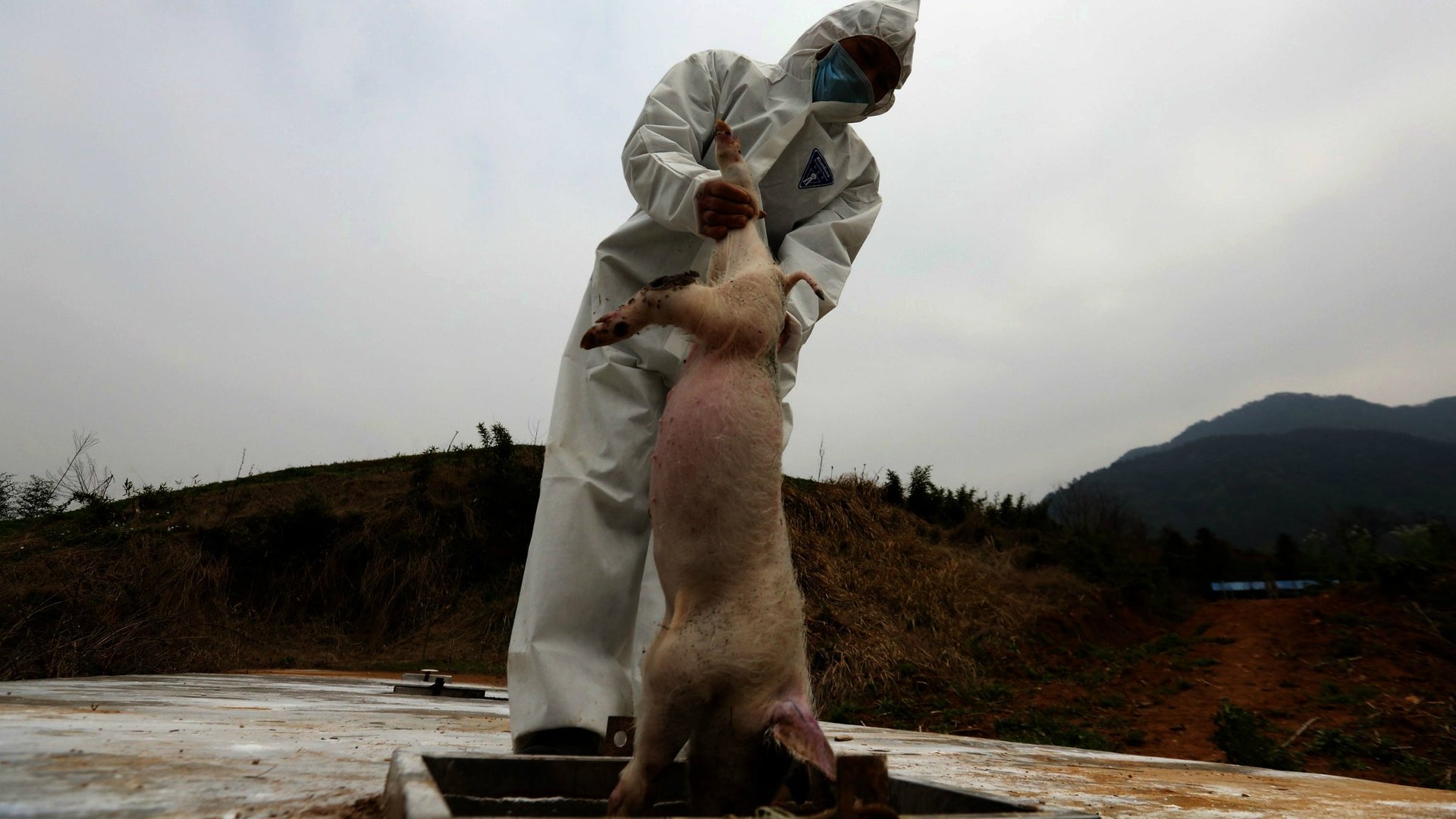In defense of liquified pig corpses
A Chinese pig farm in central Hunan province is under investigation for using an alkaline solution to dissolve diseased pig carcasses and dumping the fluid into a local river. Netizens and officials alike are disgusted, and yes, it is indisputably gross. But the practice is not as dangerous as you might think—the United States has been doing it for years.


A Chinese pig farm in central Hunan province is under investigation for using an alkaline solution to dissolve diseased pig carcasses and dumping the fluid into a local river. Netizens and officials alike are disgusted, and yes, it is indisputably gross. But the practice is not as dangerous as you might think—the United States has been doing it for years.
In a 2004 report (pdf) entitled “Carcass Disposal: A Comprehensive Review,” a research consortium in association with the US Department of Agriculture said that dissolving carcasses can be an efficient way to cull diseased animals. The only byproducts are “a sterile, coffee-colored alkaline solution with a soap-like odor” which “can be released into a sanitary sewer,” plus minerals from the animal’s bones and teeth, usable as a powdered soil fertilizer. According to the report, one US-based company has 30 to 40 dissolving units in operation across the country.
However, it seems unlikely that the Tianin Husbandry Pig Farm in China complied with recommended safety procedures, such as calibrating the pH and avoiding solidification by pouring the liquid down a drain at 374 degrees Fahrenheit. Officials say the farm dumped black odorous waste with fecal residues into a river that is also a source of drinking water for Changsha city.
China’s pig farms have struggled to hygienically dispose of diseased swine. They were once sold as bargain-rate pork on the black market; after a government crackdown on that practice, entire carcasses were illicitly dumped in the river. So the process of liquefying corpses—known as alkaline hydrolysis—could be a great solution if properly regulated. It’s cleaner than incineration, and it thoroughly kills any pathogens, perhaps forestalling any new pandemics. It also only has marginally more of a “yuk”-factor than reclaiming water from human sewage. Americans use 24 gallons of water per capita each day to flush their toilets, which is then routinely recycled for other uses. Some countries even use it (after filtering, obviously) as drinking water. Maybe Tianin Husbandry is just ahead of the curve.